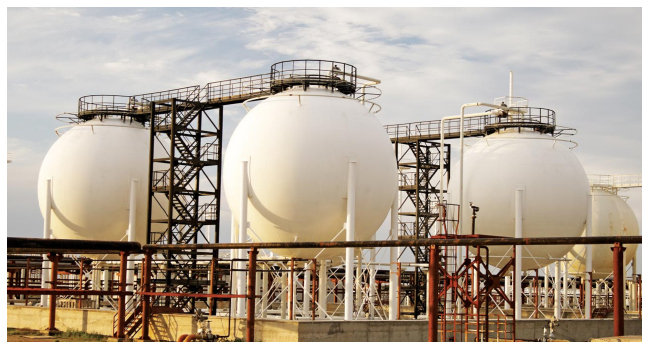The indefinite nationwide strike called by the leadership of Organized Labour has halted the technical commissioning of the 300MMscfd capacity Kwale Gas Gathering and Injection Facility by the Federal Government.
In a statement to Channels Television on Sunday, the Nigerian Content Development Monitoring Board (NCDMB) announced that the formal commissioning ceremony of the facility, initially scheduled to be conducted by the Minister of State for Petroleum Resources (Gas), Ekperikpe Ekpo, on June 6, 2024, has been postponed due to the strike, which began on Monday.
After a four-hour meeting with the National Assembly leadership on Sunday evening in Abuja, the leadership of Organized Labour confirmed their decision to proceed with the nationwide industrial action starting Monday.
“For now, we don’t have the power to call off the strike, tomorrow (Monday) morning, the strike will kick off as we take their (NASS) plea asking us to call off the strike to our various organs,” said Festus Osifo after the meeting with NASS leadership.
The 300MMscfd Capacity Kwale Gas Gathering (KGG) and injection facility, located in the Niger Delta, is a joint venture project between Xenergi Limited and NCDMB Capacity Development Intervention Company, Nedogas Development Company Limited (NDCL), in collaboration with the NNPC Gas Infrastructure Company (NGIC), a subsidiary of the Nigerian National Petroleum Company (NNPC) Limited.
Designed to manage stranded gas resources in Nigeria’s OML 56 oil province, the KGG facility offers independent operators in the region the opportunity to commercialize natural gas from their fields through the gas gathering, compression, injection, and metering infrastructure of the KGG, facilitating quick market access.
The KGG hub, now fully operational with gas injection capacity, currently handles approximately 50 MMscfd, including 20MMscfd from the Nedogas Plant situated 3km away in Energia’s Ebendo field and another 30 MMscfd from the Matsogo field operated by Chorus Energy Limited. Gas injection volumes are progressively increasing.
This project marks a significant milestone in Nigeria’s decade of gas initiative and represents a major achievement in supplying gas to the OB3 trunk line and monetizing natural gas resources from the OML 56 producer cluster.
With successful gas injection from the Energia/Oando JV and the Chorus-operated Ebendo and Matsogo fields into the OB3, the KGG Facility anticipates additional gas from nearby fields operated by First Hydrocarbon Nigeria (FHN), Pillar Oil, and Midwestern Oil & Gas, further solidifying KGG as a comprehensive gas-gathering facility and hub with single-point injection capability of up to 300 MMscfd of gas into the OB3 via the KGG tie-in.
Plans are underway to expand the capacity of the KGG facility to 600 MMscfd in the second phase.
In addition to the gas delivery obligations of the facility, the KGG will also be supplying the Delta State Economic Zone (DSEZ) from an integrated supply node within the manifold at the hub.
Speaking about the project, the Executive Secretary, NCDMB, Felix Ogbe, enthused that the success story of NEDOGAS at Kwale, Delta State, could be replicated in other oil- and gas-producing communities to minimise gas flaring. He declared the board’s readiness to continue collaborating with the company. “Their model should be extended to other parts of the country where gas flaring is continuing. They have shown that with the modular system, we can quickly remove flaring from our operations in Nigeria.”
Debo Fagbami, the Managing Director of NDCL, articulated that with the completion of the first phase of the KGG facility, the proof-of-concept to efficiently monetize gas has now been established, thus eliminating the frustration of witnessing the squandering of a valuable resource.
Rather than solely focusing on ending gas flaring, Ogbe emphasized that the project offers opportunities to utilize the potential of flare sites from these oilfields, which, he noted, will ultimately transform a “wasting” resource into an economic asset utilized for generating cleaner energy.
With approximately 180 billion cubic feet of proven natural gas reserves, Nigeria possesses the ninth-largest concentration globally. However, the country continues to flare significant quantities of its associated gas, neglecting the health and environmental well-being of Nigerians for over six decades.
According to the federal government, natural gas remains a relatively clean fossil fuel and represents a feasible transition to renewable energy, playing a crucial role in fueling the growth of developing economies like Nigeria.
Ogbe further stated that the KGG facility will generate hundreds of direct and indirect job opportunities for natives of the host and neighboring communities.
The labor unions have expressed concern that the current minimum wage of ₦30,000 can no longer adequately support the welfare of an average Nigerian worker. They lamented that not all governors are adhering to the current wage award, which expired in April 2024, five years after the Minimum Wage Act of 2019 was signed by former President Muhammadu Buhari. The Act should be reviewed every five years to align with the contemporary economic demands of workers.



